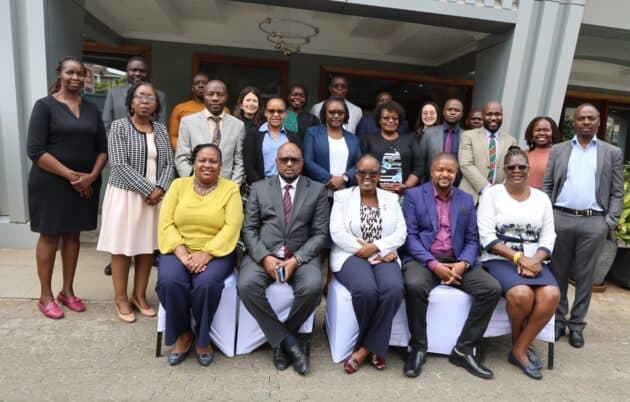We're loading the full news article for you. This includes the article content, images, author information, and related articles.
Nairobi County is poised to implement new regulations for childcare facilities, aiming to transform the sector and ensure equitable development for children. The move follows extensive stakeholder consultations.

Nairobi County is on the verge of rolling out new regulations for childcare facilities, a development anticipated to significantly reshape the provision of early childhood care and education in the capital. The finalisation of these regulations follows a series of engagements with various stakeholders, underscoring a collaborative approach to improving childcare standards.
The push for new childcare regulations in Nairobi aligns with broader national efforts to enhance child welfare and development. Existing frameworks have often been criticised for their inadequacy in addressing the evolving needs of children and the diverse challenges faced by childcare providers. This initiative by Nairobi County is seen as a crucial step towards creating a more structured, safe, and nurturing environment for young children. Analysts suggest that these developments could influence immediate public discourse and policy implementation, with stakeholders advocating for clear communication regarding timelines, associated costs, and necessary safeguards.
While the specific details of the new regulations are yet to be publicly unveiled, they are expected to cover critical areas such as facility licensing, staff qualifications, health and safety standards, curriculum guidelines, and child-to-staff ratios. These regulations will likely draw from existing national child protection laws, including the Children Act, 2022, and seek to localise their application to Nairobi's unique urban context. The goal is to establish a robust regulatory framework that ensures quality and accountability across all childcare facilities within the county.
Key stakeholders involved in the finalisation process include childcare facility owners and operators, parents, early childhood development experts, civil society organisations advocating for children's rights, and relevant government agencies. Their input has been crucial in shaping regulations that are both effective and practical. The collaborative effort aims to foster a sense of ownership and facilitate smoother implementation once the regulations are gazetted.
The introduction of new regulations carries several implications. While improved standards are a primary benefit, there are potential risks. Childcare facilities, particularly smaller ones, may face challenges in meeting new compliance requirements, potentially leading to increased operational costs or, in some cases, closures. There is also a risk of inadequate enforcement if the county lacks sufficient resources or personnel to monitor compliance effectively. For parents, the regulations could lead to higher childcare fees, though this might be offset by the assurance of better quality and safer environments for their children.
Specific details regarding the implementation timeline, the exact financial implications for childcare providers, and the enforcement mechanisms remain largely unknown. The county government has not yet released a detailed breakdown of the new regulations or a schedule for their rollout. The process for appealing decisions related to compliance or licensing is also unclear at this stage.
Observers will be keenly watching for the official release of the regulations to understand their full scope and impact. The county's plan for supporting childcare providers in transitioning to the new standards, particularly concerning training and financial assistance, will be critical. The effectiveness of the enforcement mechanisms and the overall impact on the quality and accessibility of childcare services in Nairobi will also be key areas of focus.
This initiative is part of a broader national conversation on early childhood development and education, with ongoing efforts to harmonise standards across all counties. It also intersects with discussions on urban planning and the provision of essential social services in rapidly growing cities like Nairobi.
Keep the conversation in one place—threads here stay linked to the story and in the forums.
Sign in to start a discussion
Start a conversation about this story and keep it linked here.
Other hot threads
E-sports and Gaming Community in Kenya
Active 9 months ago
The Role of Technology in Modern Agriculture (AgriTech)
Active 9 months ago
Popular Recreational Activities Across Counties
Active 9 months ago
Investing in Youth Sports Development Programs
Active 9 months ago